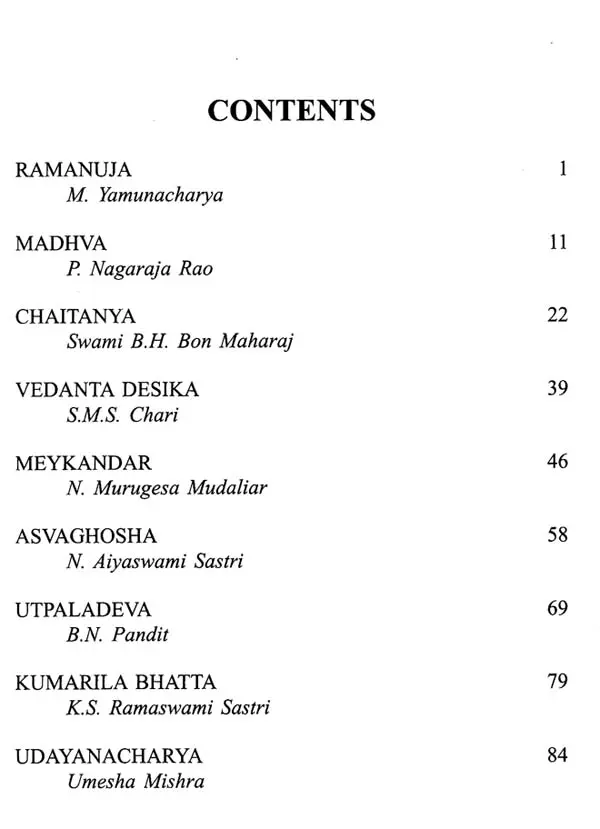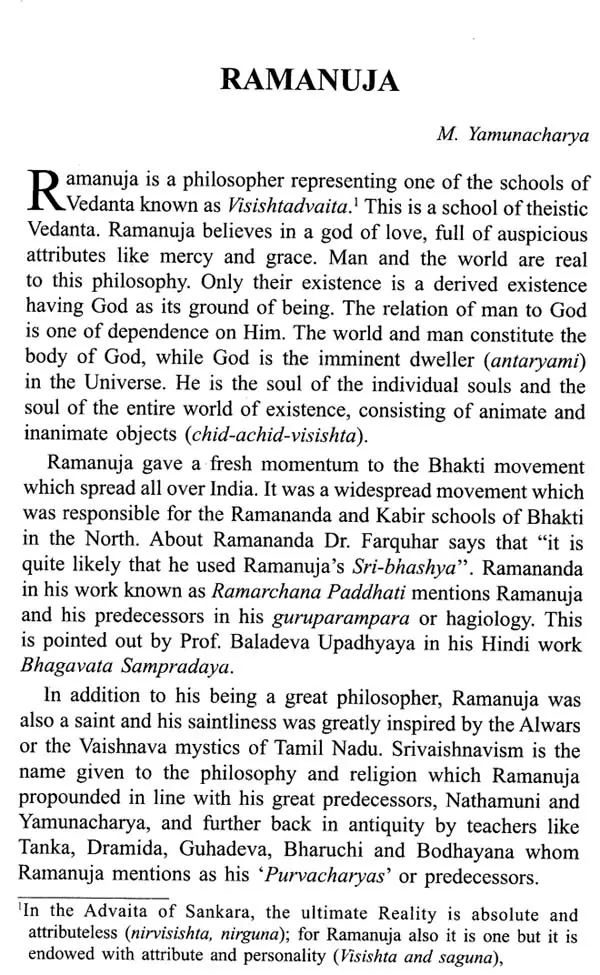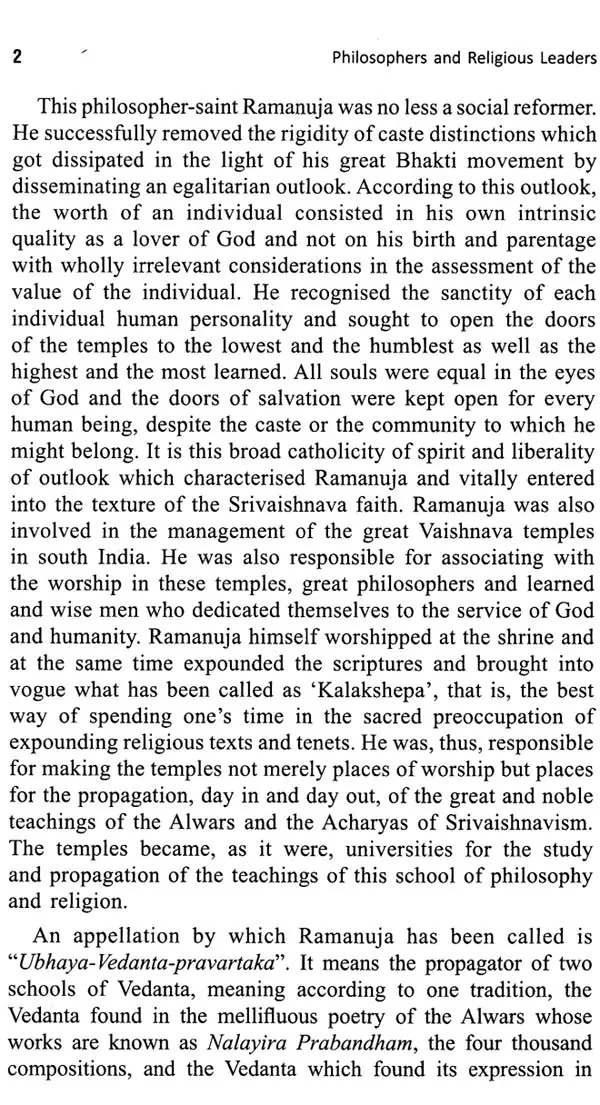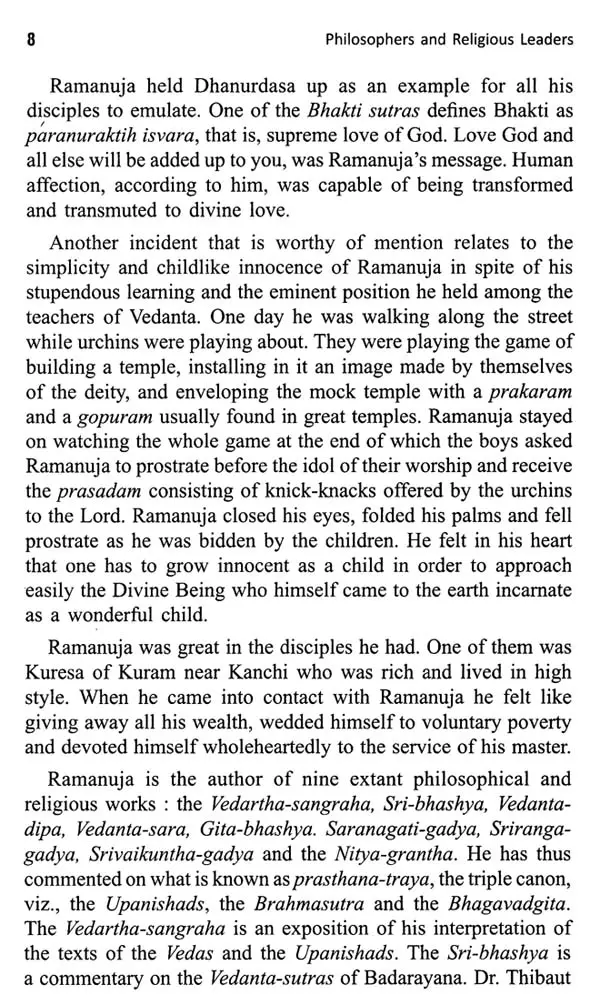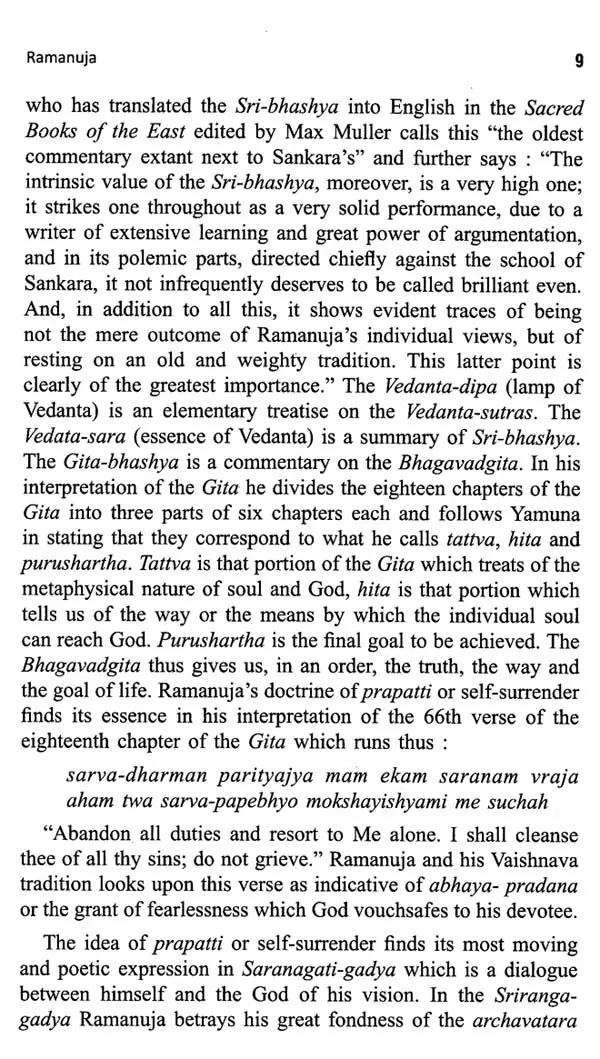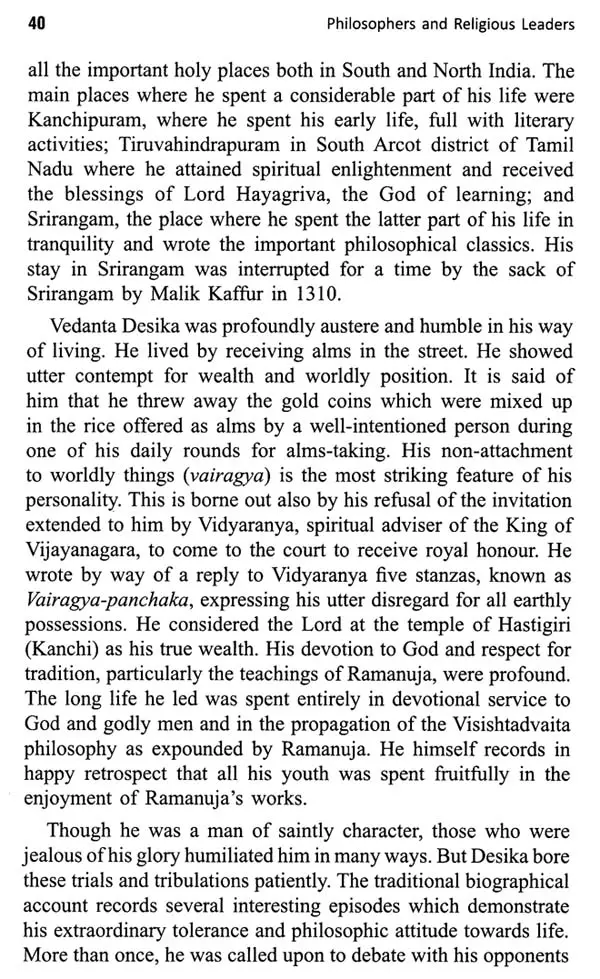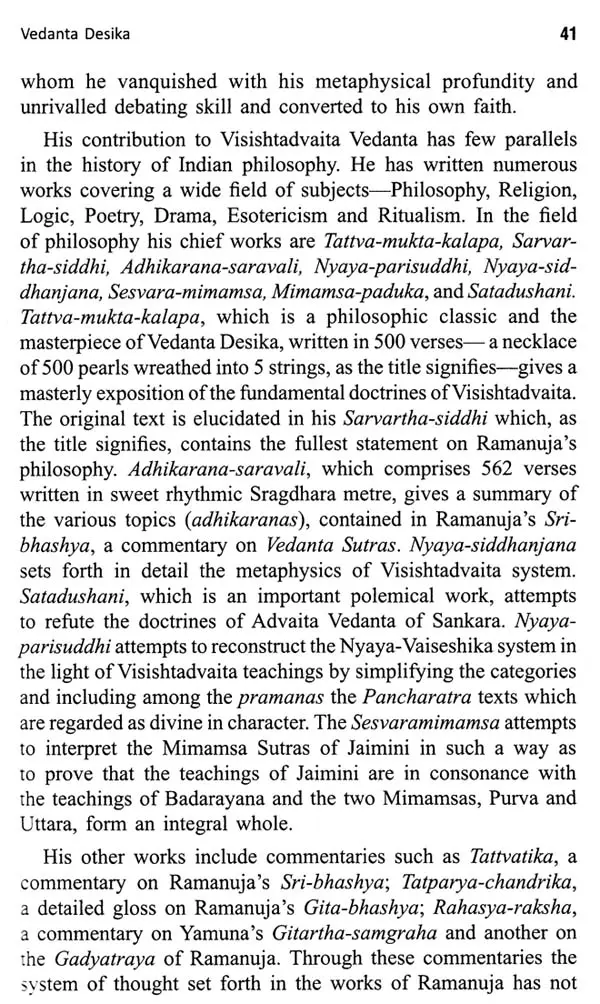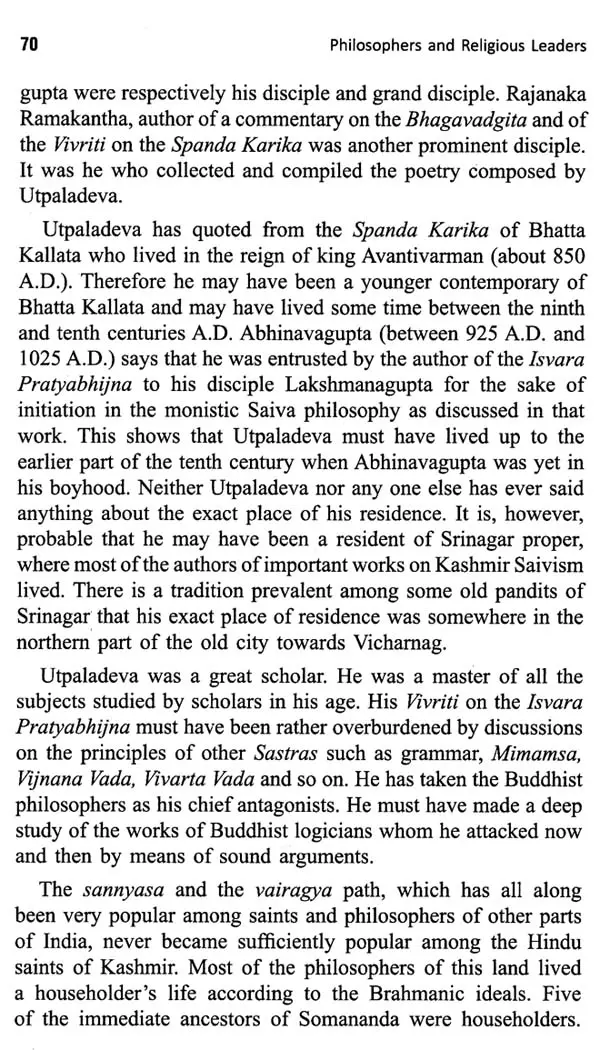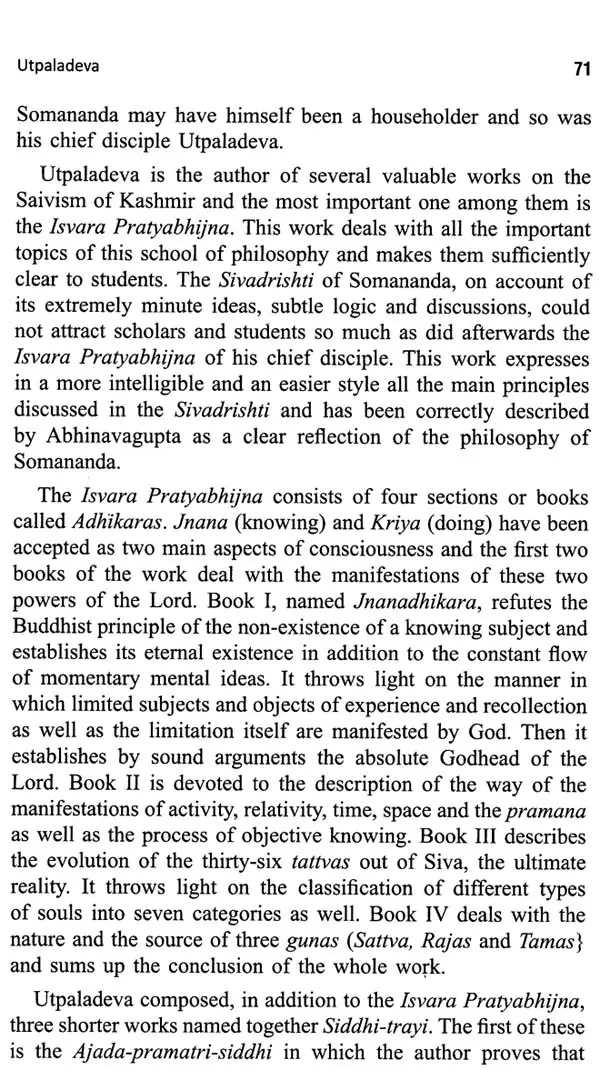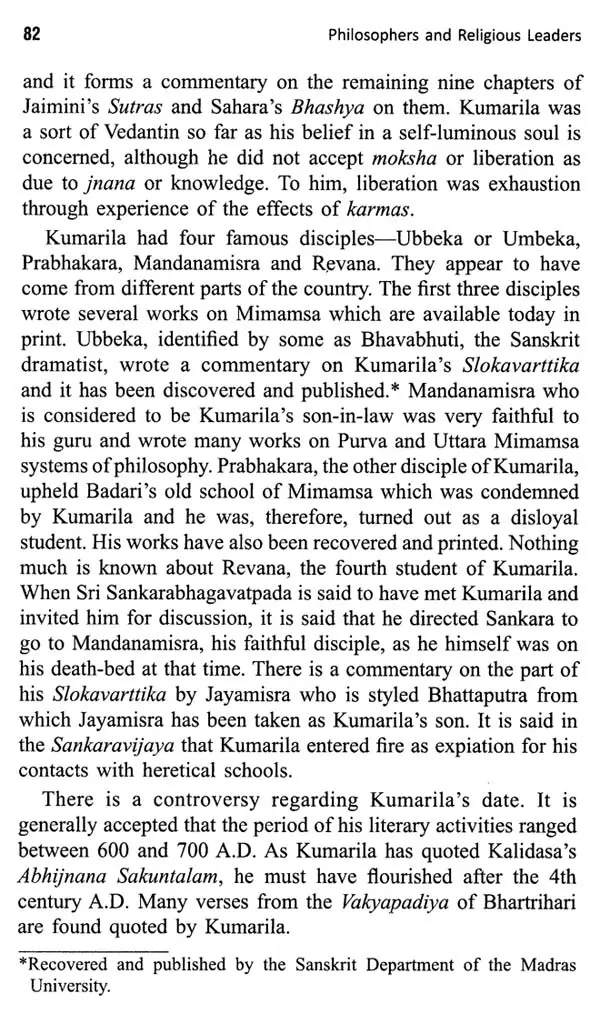
Philosopers And Religious Leaders (Part-I)
Book Specification
| Item Code: | UBD585 |
| Author: | V. Raghavan |
| Publisher: | Publication Division of Ministry of Information and Broadcasting |
| Language: | English |
| Edition: | 2017 |
| ISBN: | 9788123027234 |
| Pages: | 90 |
| Cover: | PAPERBACK |
| Other Details | 8.50 X 5.50 inch |
| Weight | 140 gm |
Book Description
Indian philosophy has been regarded as the highest achievement of the Indian mind. The Vedas form its foundation. Six schools of philosophy, popularly known as darsanas, grew out of the Vedas. Philosophical thought developed further through interpretations of the aphorisms (sutras) of the six sages who promulgated the six systems.
These interpretations resulted in the formation of various schools - monistic, dualistic and intermediary, as also absolutistic and theistic.
Each of these schools put forth its own commentaries and treatises on its tenets and polemical writings in defence of its views. The authors of this philosophical and religious literature are known as Acharyas. Nine of them have been covered in this volume. Who they were, what works they wrote, what modes of thought they expounded, what contribution they made to philosophy and religion - all this has been lucidly described. The contributors are well known scholars who have made an in-depth study of the subjects they have dealt with.
The religion and philosophy of the Veda and Vedanta determined the character of Indian thought and moulded the Indian attitude. Indian philosophy has been acclaimed as the highest achievement of the Indian mind. In this series of 'Cultural Leaders of India', the first volume was appropriately devoted to the 'Founders of Philosophy', the six Sages who promulgated the six systems of Indian philosophy (the Darsanas).
Although what these six Sages set forth as the basic texts in the form of aphorisms (Sutras) served as the ultimate source of these systems, philosophical thought developed further through commentaries and interpretations; and in this process, the thought grew and did not remain stagnant. The commentators of one school formulated their arguments against the other schools and these lively debates of the schools led to a continuous and active pursuit of philosophical thought.
These interpretations resulted in the formation of monistic, dualistic and intermediary modes of thought, as also absolutistic and the theistic modes, and among the last, those which were centred on particular personal forms of the Godhead, Siva and Vishnu, and the further manifestations of the latter as Rama and Krishna. Each of these schools put forth its own literature of commentaries, independent treatises on the tenets of the schools and polemical writings in defence of the views of that school. The authors of this expository philosophical and religious literature. are referred to as Acharyas.

